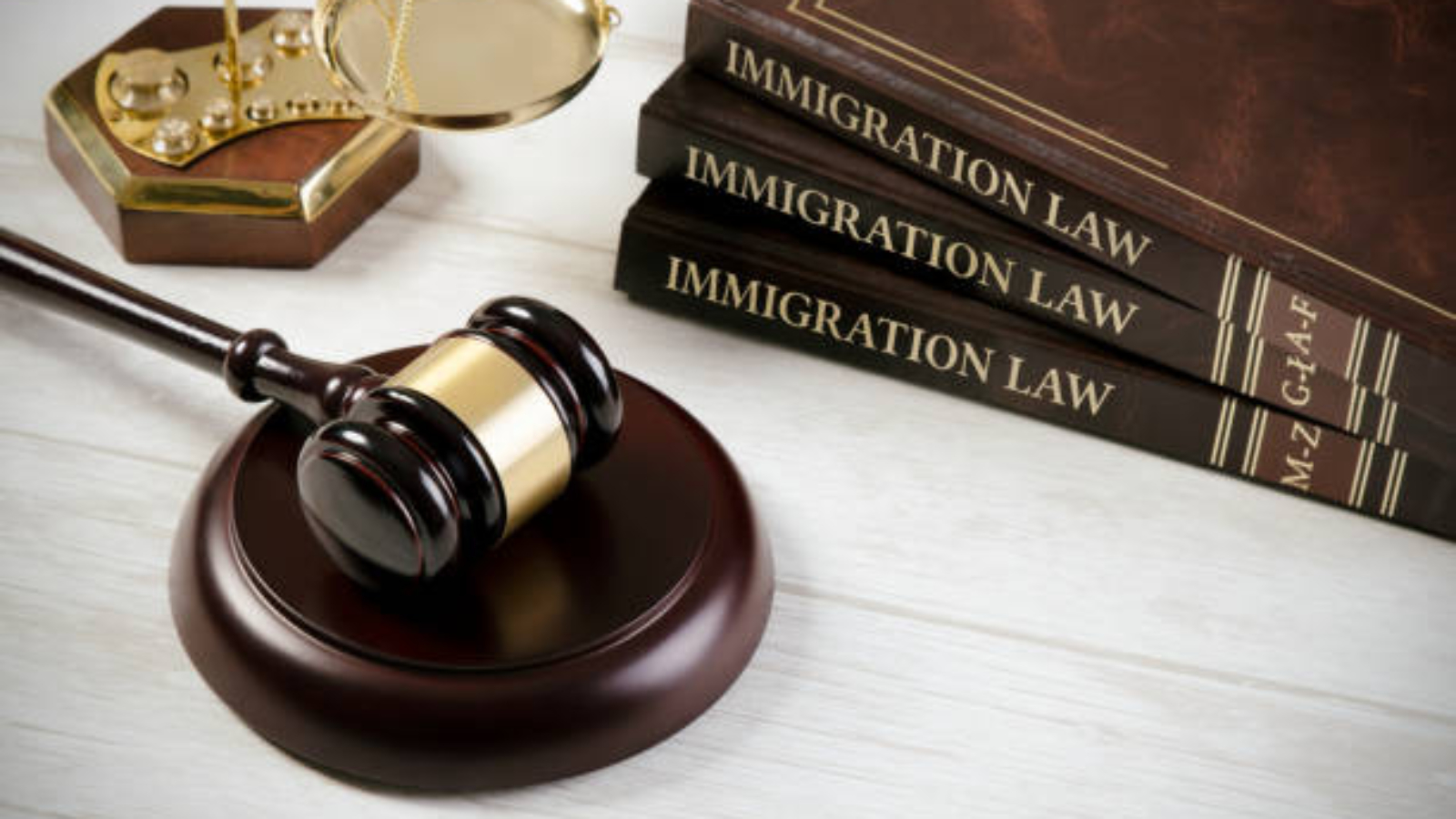If you’re waiting to immigrate to the U.S. on the basis of a visa petition filed by a family member who is a U.S. citizen or lawful permanent resident, that person’s death will certainly make the process more difficult. But unlike in past years, when the visa petition always died with the petitioner, you may still be able to get a U.S. green card. Your success depends on your relative’s status in the U.S., your relationship to him or her, where you currently live, and whether you have relatives in the United States who are willing to serve as financial sponsors for you.
Family Relations
The Family Sponsor Immigration Act, signed by President Obama in 2009, provides a potential remedy for spouses of U.S. citizens and permanent residents, unmarried sons and daughters of citizens, spouses and unmarried sons and daughter of green card holders, married sons and daughters of citizens, and brothers and sisters of citizens, in cases where the original petitioner has died.
The children of people on the above list may also be included, so long as they continue to meet the legal definition of “child” when the family’s priority date becomes current. (Immediate relatives of U.S. citizens don’t have to worry about priority dates, but preference relatives, who face annual limits on the numbers of visas allotted, must wait until a visa becomes available to them, based on their priority date – or the date their visa petition was first filed.)
If you fall into one of the above categories, and your petitioner dies, you may be able to apply for what’s called reinstatement of your visa petition on humanitarian grounds. However, you’ll have to meet certain conditions, including that:
- your Form I-130 has already been approved
- you were living in the United States at the time the petitioner died and continue to reside there on the date USCIS makes a decision on your application, and
- you find someone eligible and willing to act as your financial sponsor in place of your original petitioner (as described below).
As you can see, if you are living overseas at the time the petitioner dies, the petition will be revoked and you will not be able to go directly forward with an application for a green card. You can apply to USCIS for humanitarian reinstatement of the visa petition under old laws, but such a grant is completely discretionary. You’re likely to face long delays. You’ll need a lawyer’s help to present compelling evidence of why your approval should be granted.
OLDER LAWS THAT MAY APPLY
Basic Eligibility for Section 204(l) Relief for Surviving Relatives
You may be eligible to seek relief if you are a:
- Principal or derivative beneficiary of Form I-130, Petition for Alien Relative (regardless of whether the petitioner was a U.S. citizen or lawful permanent resident), and the petitioner died;
- Derivative beneficiary of Form I-130, Petition for Alien Relative (regardless of whether the petitioner was a U.S. citizen or lawful permanent resident), and the principal beneficiary died;
- Derivative asylee (AS-2 or AS-3) and the principal asylee (AS-1) died.
In addition, at least one beneficiary, or derivative beneficiary, resided in the United States when the relative died and continues to reside in the United States when seeking relief. The Department of Homeland Security (DHS) may decline to provide relief if it determines, in its discretion, that doing so would not be in the public interest.
Residence for the Purpose of Section 204(l) Relief Eligibility
- You “reside” in the United States if your “residence” is in the United States.
- Your residence is your primary home or your “principal actual dwelling place in fact, without regard to intent.” (See section 101(a)(33) of the Act.)
If you can show that your primary home when your relative died–where you were actually living–was in the United States, and it is still in the United States, you may benefit from section 204(l) relief.
Certain petitions can have more than one beneficiary. For example, the spouse or child(ren) of the principal beneficiary may be eligible to immigrate along with the principal beneficiary. As long as at least one of the beneficiaries was “residing” in the United States, and is still “residing” here, all of the beneficiaries can benefit from section 204(l) relief. (Note: Unlike certain other petitions, Form I-730 will have only one beneficiary.)
Section 204(l) relief eligibility requires that someone must have “resided” here; it does not require physical presence in the United States when the relative died. Residence is not interrupted by incidental travel. Events like a vacation, visiting family, or travel for work do not affect your eligibility for section 204(l) relief.
Favorable Exercise of Discretion
Relief under section 204(l) is not an “entitlement,” but a matter that Congress has entrusted to DHS discretion. USCIS has discretion to deny relief under section 204(l) if USCIS finds that granting relief under section 204(l) would not be in the public interest. As with other forms of discretionary relief, exercising discretion means weighing positive factors against negative factors to make a decision. In addition to meeting the basic requirements for section 204(l) relief, your request must warrant a favorable exercise of discretion, meaning that the “pros” in granting your request outweigh the “cons.” However, USCIS knows that section 204(l) is intended to help people who were put in an unfortunate position because of a sad event that was beyond their control. The intent of the law is a very strong “pro” factor that weighs favorably in the exercise of discretion.
Pending or Approved Petitions and Applications
You may benefit from section 204(l) relief if your relative died:
- While the petition (for example, Forms I-130 or I-140), or Form I-730 was pending;
- After the petition (for example, Forms I-130 or I-140) was approved;
The requirements for section 204(l) relief are the same, regardless of whether the petition or application was pending or approved when your relative died. If a case is pending or approved, you can make the request to USCIS. The information we need to process your request is the same. The way we process requests for relief is slightly different, however. The process for submitting a request for section 204(l) relief is explained below.
Petition or Application for Adjustment of Status is Pending
If you were a beneficiary of a pending petition (including Form I-730) or application for adjustment of status when your relative died, USCIS may continue processing your petition or application if you request and are granted section 204(l) relief. You need to make a written request to have USCIS apply section 204(l) to your case. See How to Request Section 204(l) Relief for information on how to request section 204(l) relief.
Basic Eligibility for Section 204(l) Relief for Surviving Relatives
You may be eligible to seek relief if you are a:
- Principal or derivative beneficiary of Form I-130, Petition for Alien Relative (regardless of whether the petitioner was a U.S. citizen or lawful permanent resident), and the petitioner died;
- Derivative beneficiary of Form I-130, Petition for Alien Relative (regardless of whether the petitioner was a U.S. citizen or lawful permanent resident), and the principal beneficiary died;
- Derivative beneficiary of Form I-140, Immigrant Petition for Alien Worker, and the principal beneficiary died;
- Beneficiary of a pending Form I-730, Refugee/Asylee Relative Petition, and the petitioner died;
- T or U nonimmigrant visa holder in a derivative classification (T-2, T-3, T-4, T-5, U-2, U-3, U-4, U-5) and the principal (T-1 or U-1) visa holder died; or
- Derivative asylee (AS-2 or AS-3) and the principal asylee (AS-1) died.
In addition, at least one beneficiary, or derivative beneficiary, resided in the United States when the relative died and continues to reside in the United States when seeking relief. The Department of Homeland Security (DHS) may decline to provide relief if it determines, in its discretion, that doing so would not be in the public interest.
Residence for the Purpose of Section 204(l) Relief Eligibility
- You “reside” in the United States if your “residence” is in the United States.
- Your residence is your primary home or your “principal actual dwelling place in fact, without regard to intent.” (See section 101(a)(33) of the Act.)
If you can show that your primary home when your relative died–where you were actually living–was in the United States, and it is still in the United States, you may benefit from section 204(l) relief.
Certain petitions can have more than one beneficiary. For example, the spouse or child(ren) of the principal beneficiary may be eligible to immigrate along with the principal beneficiary. As long as at least one of the beneficiaries was “residing” in the United States, and is still “residing” here, all of the beneficiaries can benefit from section 204(l) relief. (Note: Unlike certain other petitions, Form I-730 will have only one beneficiary.)
Section 204(l) relief eligibility requires that someone must have “resided” here; it does not require physical presence in the United States when the relative died. Residence is not interrupted by incidental travel. Events like a vacation, visiting family, or travel for work do not affect your eligibility for section 204(l) relief.
Favorable Exercise of Discretion
Relief under section 204(l) is not an “entitlement,” but a matter that Congress has entrusted to DHS discretion. USCIS has discretion to deny relief under section 204(l) if USCIS finds that granting relief under section 204(l) would not be in the public interest. As with other forms of discretionary relief, exercising discretion means weighing positive factors against negative factors to make a decision. In addition to meeting the basic requirements for section 204(l) relief, your request must warrant a favorable exercise of discretion, meaning that the “pros” in granting your request outweigh the “cons.” However, USCIS knows that section 204(l) is intended to help people who were put in an unfortunate position because of a sad event that was beyond their control. The intent of the law is a very strong “pro” factor that weighs favorably in the exercise of discretion.
Pending or Approved Petitions and Applications
You may benefit from section 204(l) relief if your relative died:
- While the petition (for example, Forms I-130 or I-140), or Form I-730 was pending;
- After the petition (for example, Forms I-130 or I-140) was approved;
- While your Form I-485, Application to Register Permanent Residence or Adjust Status, was pending;
- While you were in T or U nonimmigrant status, but before you filed Form I-485;
- While you were in T or U nonimmigrant status, after you filed Form I-485;
- While you were in asylee status, before you filed Form I-485; or
- While you were in asylee status, after you filed Form I-485.
The requirements for section 204(l) relief are the same, regardless of whether the petition or application was pending or approved when your relative died. If a case is pending or approved, you can make the request to USCIS. The information we need to process your request is the same. The way we process requests for relief is slightly different, however. The process for submitting a request for section 204(l) relief is explained below.
Petition or Application for Adjustment of Status is Pending
If you were a beneficiary of a pending petition (including Form I-730) or application for adjustment of status when your relative died, USCIS may continue processing your petition or application if you request and are granted section 204(l) relief. You need to make a written request to have USCIS apply section 204(l) to your case. See How to Request Section 204(l) Relief for information on how to request section 204(l) relief.
Petition was Approved
If your immigrant petition was already approved before your relative died, the approval is automatically revoked by function of law (see 8 CFR 205.1(a)(3)(i)(B) and (C)). Section 204(l) can still apply to a case that was revoked, so the revocation does not mean that your case is over. Rather, “revocation” and “reinstatement” simply provide a procedural mechanism that lets USCIS verify whether section 204(l) applies to your case and, if it does, to decide whether to exercise discretion favorably.
When you request and are granted section 204(l) relief, USCIS reinstates the approval of the petition, so that you can continue the process of obtaining lawful permanent residence (Green Card). This is a technical difference because of how the law is written and other laws and regulations that existed before section 204(l) was enacted, but the outcome is the same: when section 204(l) relief is requested and granted, you can continue the immigration process. Processing times may vary, depending on where your file is located and other factors. See How to Request Section 204(l) Relief for information on how to request section 204(l) relief.
How to Request Section 204(l) Relief
There is no form or fee to ask for section 204(l) relief. You need to make a written request with supporting evidence of eligibility to a USCIS office.
- If your relative dies while the petition is pending, you should specifically ask USCIS “to approve the petition under section 204(l),” despite your relative’s death.
- If your relative dies after the petition (for example, Forms I-130 or I-140) is approved, you should specifically ask USCIS “to reinstate the approval of the petition under section 204(l).”
- If your relative dies while Form I-730 petition is pending, you should specifically ask the USCIS office that has your petition “to approve the petition under section 204(l),” despite your relative’s death.
When you request section 204(l) relief, you must include:
- Your name, your deceased relative’s name, and the names of any other beneficiaries on the same petition;
- Your alien registration number (A number), if you have one;
- Your deceased relative’s A number, if he or she had one;
- The A number for any other beneficiaries, if they have one;
- The receipt number on your petition or application;
- Your relative’s death certificate (a certified translation is required, if not in English);
- Proof of your residence (examples include, but are not limited to: lease/mortgage, utility bills, pay stubs, school records, etc.) at the time of your relative’s death up until the present time (note: only one of the beneficiaries on a petition with derivatives needs to meet the residence requirement); and
Petition was Approved
If your immigrant petition was already approved before your relative died, the approval is automatically revoked by function of law (see 8 CFR 205.1(a)(3)(i)(B) and (C)). Section 204(l) can still apply to a case that was revoked, so the revocation does not mean that your case is over. Rather, “revocation” and “reinstatement” simply provide a procedural mechanism that lets USCIS verify whether section 204(l) applies to your case and, if it does, to decide whether to exercise discretion favorably.
When you request and are granted section 204(l) relief, USCIS reinstates the approval of the petition, so that you can continue the process of obtaining lawful permanent residence (Green Card). This is a technical difference because of how the law is written and other laws and regulations that existed before section 204(l) was enacted, but the outcome is the same: when section 204(l) relief is requested and granted, you can continue the immigration process. Processing times may vary, depending on where your file is located and other factors. See How to Request Section 204(l) Relief for information on how to request section 204(l) relief.
How to Request Section 204(l) Relief
There is no form or fee to ask for section 204(l) relief. You need to make a written request with supporting evidence of eligibility to a USCIS office.
- If your relative dies while the petition is pending, you should specifically ask USCIS “to approve the petition under section 204(l),” despite your relative’s death.
- If your relative dies after the petition (for example, Forms I-130 or I-140) is approved, you should specifically ask USCIS “to reinstate the approval of the petition under section 204(l).”
- If your relative dies while Form I-730 petition is pending, you should specifically ask the USCIS office that has your petition “to approve the petition under section 204(l),” despite your relative’s death.
Kamal Nawash of Nawash Law Office



Add a Comment